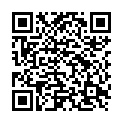|
|
|
| Module code: MST.SMS |
|
|
2SU (2 hours per week) |
|
5 |
| Semester: 6 |
| Mandatory course: yes |
Language of instruction:
English/German |
Assessment:
Project work
[updated 10.05.2021]
|
MST.SMS (P231-0078) Mechatronics and Sensor Technology, Bachelor, ASPO 01.10.2012
, semester 6, mandatory course
MST.SMS (P231-0078) Mechatronics and Sensor Technology, Bachelor, ASPO 01.10.2011
, semester 6, mandatory course
|
30 class hours (= 22.5 clock hours) over a 15-week period.
The total student study time is 150 hours (equivalent to 5 ECTS credits).
There are therefore 127.5 hours available for class preparation and follow-up work and exam preparation.
|
Recommended prerequisites (modules):
None.
|
Recommended as prerequisite for:
|
Module coordinator:
Prof. Dr.-Ing. Jürgen Schäfer |
Lecturer: Prof. Dr.-Ing. Jürgen Schäfer
[updated 01.10.2005]
|
Learning outcomes:
After successfully completing this module, students will have acquired the basic knowledge required to control of technical processes with freely programmable controls in an industrial environment incl. the methodology for the realization of arbitrary sequence controls by means of deterministic. finite automata. Students will be familiar with the procedure for implementing digital controllers. Students will be able to safely design and implement controls for mechatronic systems on simple microcontroller systems.
[updated 10.05.2021]
|
Module content:
1. Introduction/Concept
- Cyclic data acquisition to create a process image
- Capturing asynchronous events
- Communication via fieldbuses
2. Sequential and quasi-parallel sequential controls using deterministic finite automata
- Theory
-- Transitions
-- Actions
- Graphical representation
- Implementation
3. Implementing discrete-time controllers
- Discretization of continuous-time systems
-- PT1 systems
-- Integrators
-- Differentiators
-- PID controller
-- Implementation
4. Practical application examples
[updated 10.05.2021]
|
Recommended or required reading:
Jospeh Yiu: "The Definite Guide to the ARM Cortex-M3", Newnes
Bruce P. Douglass: "Design Patterns for Embeddd Systems in C", Newnes
Daniel W. Lewis: "Fundamentals of Embedded Software with the ARM Cortex-M3", Pearson International Ed.
Thomas Eißenlöffel: "Embedded-Software entwickeln", dpunkt.verlag
J. A. Langbridge: Professional Embedded ARM Development, John Wiley & Sons, 2014
Jan Lunze: "Regelungstechnik I", Springer (available online)
Heinz Unbehauen: "Regelungstechnik I", Vieweg Teubner (available online)
Robert C. Seacord: The CERT C Coding Standard, 98 Rules for Developing Safe, Reliable and Secure Systems, 2nd ed., Addison Wesley, 2014 ==> https://securecoding.cert.org/confluence/display/seccode/CERT+C+Coding+Standard
[updated 10.05.2021]
|


